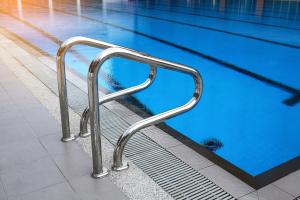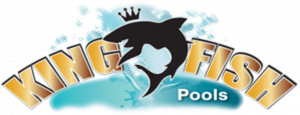Consistent Weekly Pool Maintenance Essential for Clean, Safe Swimming Conditions, Says Louisiana Pool Contractor
A well-maintained pool requires more than just a casual glance at the water. Proper balance, filtration, circulation, and sanitation all work together to prevent algae growth, equipment breakdowns, and unsafe swimming conditions. Without a detailed plan, small oversights can lead to major issues, from chemical imbalances to costly repairs.
William Gunzburg, owner of Kingfish Pools Inc. in Metairie, Louisiana, emphasizes that consistency is the key to avoiding preventable damage and ensuring long-term functionality.
“Weekly pool maintenance isn’t just about appearances,” said Gunzburg. “It’s about protecting equipment, health, and investment. Skipping or delaying routine care often leads to complications that require far more time and expense to resolve.”
A standard weekly checklist includes a combination of physical cleaning, chemical monitoring, and equipment inspection. This routine should be followed regardless of pool size, design, or usage levels.
Weekly Pool Maintenance Checklist
1. Skim Surface Debris
Leaves, insects, pollen, and other organic material should be removed from the surface using a skimmer net. Surface skimming helps prevent debris from sinking and decaying, which can lead to staining and chemical imbalances.
2. Empty Skimmer and Pump Baskets
Basket compartments must be emptied to ensure proper water flow through the filtration system. Clogged baskets reduce circulation, place stress on the pump, and allow contaminants to build up in the water.
3. Brush Pool Walls and Floor
Brushing helps prevent algae and biofilm buildup. Focus on areas with limited water circulation, including steps, corners, and behind ladders. Use the appropriate brush type for plaster, vinyl, or tile surfaces.
4. Vacuum the Pool
Manual or automatic vacuums should be run weekly to remove fine debris from the floor. This step supports sanitation by eliminating organic material that can consume chlorine and create cloudy water.
5. Check and Adjust Water Level
Water levels should be maintained at the midpoint of the skimmer opening. Too low, and the pump may run dry. Too high, and skimming efficiency decreases. Evaporation and splash-out should be corrected with a hose as needed.
6. Test Pool Chemistry
Using a reliable test kit, measure free chlorine, pH, alkalinity, and calcium hardness. In many cases, testing for cyanuric acid (stabilizer) and total dissolved solids is also beneficial. Chemical levels must be kept within recommended ranges to ensure swimmer safety and protect pool surfaces.
Free Chlorine: 1–3 ppm
pH: 7.2–7.8
Total Alkalinity: 80–120 ppm
Calcium Hardness: 200–400 ppm
Cyanuric Acid (Stabilizer): 30–50 ppm for outdoor pools
7. Adjust Chemicals as Needed
Add chlorine, pH increaser or reducer, alkalinity buffer, or calcium as necessary. It is essential to follow manufacturer guidelines for dilution, application, and mixing to avoid overcorrection or chemical interactions.
8. Shock the Pool (If Applicable)
Depending on usage, weather, or recent rain, the pool may require a weekly shock treatment. Shocking oxidizes organic contaminants and restores sanitizer effectiveness. Non-chlorine oxidizers can also be used for lighter loads.
9. Clean the Filter
Filters—whether sand, cartridge, or DE (diatomaceous earth)—should be inspected weekly and cleaned as needed. Cartridge filters should be rinsed when pressure rises 8–10 psi above normal. Sand and DE filters may need backwashing or media replacement based on manufacturer intervals.
10. Inspect Equipment Functionality
Check pump operation, filter pressure, valve settings, heater performance, and timer schedules. Early detection of wear or malfunction prevents damage and extends the life of equipment.
11. Examine Pool Perimeter
Inspect the deck, coping, ladders, handrails, and safety equipment. Ensure all surfaces are clean, secure, and in good condition. Remove standing water and clear clutter to reduce slip hazards and support an organized pool area.
12. Record Maintenance Data
Keeping a log of chemical levels, equipment readings, and services performed allows patterns to be identified and potential problems to be addressed before they escalate. Maintenance records are especially important for commercial or multi-user residential pools.
In regions like Southeast Louisiana, where rainfall, humidity, and debris from vegetation can all impact pool conditions, weekly maintenance provides stability. Environmental factors such as high pollen levels, heat, and storm runoff require regular intervention to keep water clean and clear.
Pools left unattended or maintained inconsistently are more likely to develop algae blooms, cloudy water, and corrosive conditions that damage liners, plaster, and mechanical components. Preventive care reduces the need for corrective treatments and protects the value of the property.
Smart technologies and automation systems can assist with chemical monitoring, filtration schedules, and remote alerts—but hands-on inspection and manual care are still necessary for optimal performance.
As seasonal use increases during the warmer months, adhering to a disciplined weekly routine helps prevent service disruptions and costly mid-season overhauls. Pool owners are advised to establish a consistent day of the week for maintenance and adhere to it as closely as possible.
Morgan Thomas
Rhino Digital, LLC
+1 504-875-5036
email us here
Visit us on social media:
Facebook
Legal Disclaimer:
EIN Presswire provides this news content "as is" without warranty of any kind. We do not accept any responsibility or liability for the accuracy, content, images, videos, licenses, completeness, legality, or reliability of the information contained in this article. If you have any complaints or copyright issues related to this article, kindly contact the author above.
Global Advanced Process Control (APC) Market Insight, Growth, Industry Trends | Reports and Data
Gas Engine Market to Grow at 3.8% CAGR, Reaching $6.0 Bn by 2031
New Music Alert Gospel Rock Artist Rikki Doolan Releases Anthemic Single You Got Somebody
Więcej ważnych informacji
 Jedynka Newserii
Jedynka Newserii

 Jedynka Newserii
Jedynka Newserii

Konsument

Polacy nie korzystają z hossy trwającej na warszawskiej giełdzie. Na wzrostach zarabiają głównie inwestorzy zagraniczni
Od października 2022 roku na rynkach akcji trwa hossa, nie omija ona także warszawskiej giełdy. Mimo to inwestorzy indywidualni odpowiadają zaledwie za kilkanaście procent inwestycji, a o wzrostach decyduje i na nich zarabia głównie kapitał z zagranicy. Widać to również po napływach i odpływach do i z funduszy inwestycyjnych. Zdaniem Tomasza Koraba, prezesa EQUES Investment TFI, do przekonania Polaków do inwestowania na rodzimej giełdzie potrzeba zysków z akcji, informacji o tych zyskach docierającej do konsumentów oraz czasu.
Polityka
Obowiązek zapełniania magazynów gazu w UE przed sezonem zimowym ma zapewnić bezpieczeństwo dostaw. Wpłynie też na stabilizację cen

Unia Europejska przedłuży przepisy z 2022 roku dotyczące magazynowania gazu. Będą one obowiązywać do końca 2027 roku. Zobowiązują one państwa członkowskie do osiągnięcia określonego poziomu zapełnienia magazynów gazu przed sezonem zimowym. Magazyny gazu pokrywają 30 proc. zapotrzebowania Unii Europejskiej na niego w miesiącach zimowych. Nowe unijne przepisy mają zapewnić stabilne i przystępne cenowo dostawy.
Infrastruktura
Gminy zwlekają z uchwaleniem planów ogólnych zagospodarowania przestrzennego. Może to spowodować przesunięcie terminu ich wejścia w życie

Reforma systemu planowania i zagospodarowania przestrzennego rozpoczęła się we wrześniu 2023 roku wraz z wejściem w życie większości przepisów nowelizacji ustawy z 27 marca 2003 roku. Uwzględniono w niej plany ogólne gminy (POG) – nowe dokumenty planistyczne, za których przygotowanie mają odpowiadać samorządy. Rada Ministrów w kwietniu br. uchwaliła jednak ustawę o zmianie ustawy z 7 lipca 2023 roku, a jej celem jest zmiana terminu obowiązywania studiów uwarunkowań i kierunków zagospodarowania przestrzennego gmin na 30 czerwca 2026 roku. Wskazana data może nie być ostateczna z uwagi na to, że żadna z gmin nie uchwaliła jeszcze POG.
Partner serwisu
Szkolenia

Akademia Newserii
Akademia Newserii to projekt, w ramach którego najlepsi polscy dziennikarze biznesowi, giełdowi oraz lifestylowi, a także szkoleniowcy z wieloletnim doświadczeniem dzielą się swoją wiedzą nt. pracy z mediami.










.gif)

 |
| |
| |
|